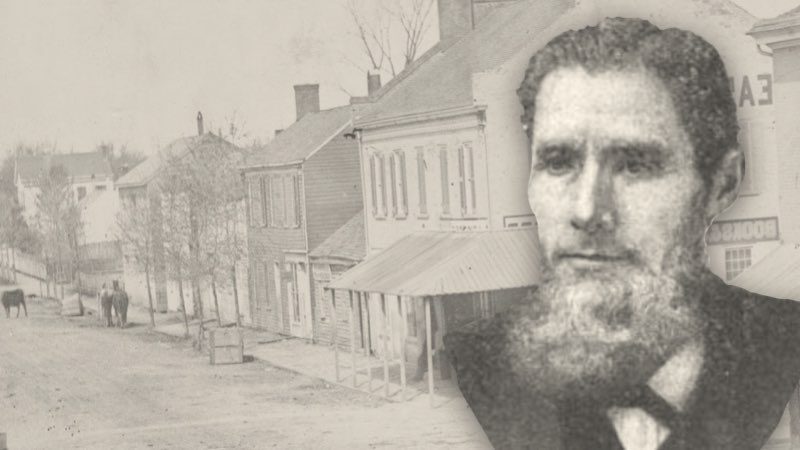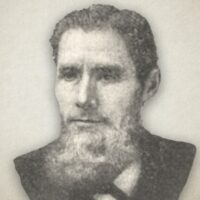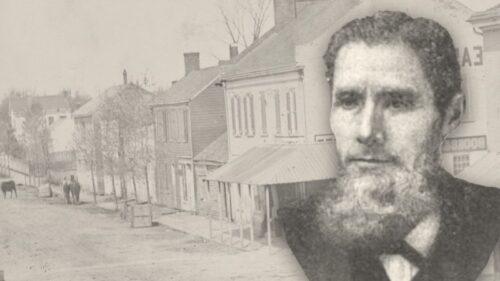
The Omniscience Of God
Signs Of The Times 1901:
Omniscience – boundless knowledge. Omniscient – knowing all things. God only is omniscient, for he alone knoweth all things. All his intelligent creatures, whether men or angels, are greatly limited in knowledge, being finite in all their powers. Not so with God, who is unlimited in every perfection of his, for he is the infinite one. Infiniteness cannot be measured nor bounded, and therefore God is absolutely unlimited, both in his being and in all his faculties or powers. So, his knowledge is as unbounded as his eternity, and omnipresence, and omnipotence, for these, with all his other perfections, ascend upward and downward and outward forever and forever, all filling infinite eternity, having no bound or limit. And in all these majestic and awe-inspiring attributes, our blessed God and Father has always been present in all his limitless or infinite universe, and now is, AT ONCE AND EVER SEEING AND KNOWING ALL THINGS.
This is profoundly wonderful, and it overwhelms us, beloved, because we are so infinitely less than nothing, as compared with God, and we know nothing perfectly. But the omniscient One, who fills eternal space or limitless ether, sees and knows us and all things at a glance, perfectly and exactly as we are. For although his word says that all the nations are as the small dust of the balance, which is too small for us to notice, yet they are all so clearly seen in his omniscient eye that he watches the little bird, and numbers the very hairs of our heads. No wonder that David the king would say, “Such knowledge is too wonderful for me: it is high, I cannot attain unto it.” “How precious also are thy thoughts unto me, O God! how great is the sum of them! If I should count them, they are more in number than the sand: when I awake, I am still with thee.” All this is as true of every child of God, as it was of David. How blessed for us that it is true!
Yet there are those who are so wise in their own eyes that they make light of all this, and even ridicule the belief that the infinite One takes notice of all little things, because they in their self-importance would not. And so they measure God by themselves, and think themselves so wise that they can judge of what the Almighty should be and do, and set limits for him. It is a rich mercy, however, that our omniscient God does see and care for the smallest particles of dust in his boundless dominion, because unless he did, those vaunting nothings, who reply against their Maker, would be left to their own reward, that is, to perish in their littleness.
EVIDENCE THAT GOD IS OMNISCIENT
While Baptists and many others admit the omniscience of God, that he forever knew all things, still this does not prove that it is so, and we must therefore turn to the law and testimony of the Lord in proof of this, as also of every other attribute and truth of God. For, on the other hand, some Baptists and many others deny the omnipotence of God, his unlimited sovereignty, but their denial of this truth does not disprove it by any means, for if it did, then “his eternal power and Godhead” would be destroyed. The apostle Peter said to his Lord, “Thou knowest all things.” James said, “Known unto God are all his works from the beginning of the world.” And as to the extent of his works, Solomon said, “The Lord hath made all things for himself; yea, oven the wicked for the day of evil.” David asks, “He that planted the ear, shall he not hear? he that formed the eye, shall he not see? he that chastiseth the heathen, shall not he correct! he that teacheth man knowledge, shall not he know? The Lord knoweth the thoughts of man, that they are vanity.” Hannah said, “The Lord is a God of knowledge, and by him actions are weighed.” “Day unto day uttereth speech, and night unto night sheweth knowledge. There is no speech nor language, where their voice is not heard,” sang the sweet psalmist of Israel. “For there is not a word in my tongue, but, lo, O Lord, thou knowest it altogether.” To his disciples the Lord said, “Fear them not therefore: for there is nothing covered, that shall not be revealed; nor hid, that shall not be known.” Of Christ, Paul says, “In whom are hid all the treasures of wisdom and knowledge.” The wise man said, “The eyes of the Lord are in every place, beholding the evil and the good.” Paul said of him, “Neither is there any creature that is not manifest in his sight: but all things are naked and opened unto the eyes of him with whom we have to do.”
All this Scripture fully establishes the omniscience of God, and shows that all things were forever known unto him, so that his foreknowledge is perfect, unlimited or infinite. To deny this, is equal to saying that the Lord was both ignorant and changeable; for every increase in knowledge shows former ignorance, and change to more perfect knowledge. It follows also, that if God did not possess perfect knowledge from all eternity of all things that should ever be, then neither could he “work all things after the counsel of his own will,” nor could Paul have truly said, “And we know that all things work together for good to them that love God, to them who are the called according to his purpose;” for both his counsel and his purpose would be at fault concerning everything which God did not perfectly see and know from the beginning. This is a self-evident truth. The most perfect man in knowledge, is yet ignorant of many things, both present and future, and so he cannot provide for or against anything or all things unknown to him, even if he has the power to do so. This absolute truth as certainly establishes another truth; that is,
GOD’S ATTRIBUTES ARE EQUAL
His counsel and his purpose and his power are as unlimited as his knowledge, and all are alike infinite and changeless. To deny this, is to deny that God is, and say with the fool, “There is no God.” For as truly as the omniscience of God saw and knew all things from the beginning, or ever the earth was, so surely did his wisdom and counsel and purpose also determine all things; because either himself or some one else must determine all things, before they could be foreknown as certain to come to pass. This is a self-evident fact. For not God himself could foreknow anything, great or small, and yet that thing never exist or come to pass. To say he could, would be as absurd as to say that a lie is the truth. Therefore, beloved, all must admit, either that the determinate counsel and foreknowledge of God “
ESTABLISH THE CERTAINTY OF ALL THINGS, or else they must deny the certain foreknowledge of God, and limit him in knowledge, even as they limit him in his “determinate counsel “and purpose; for it is self-evident that the divine foreknowledge of all things, makes ALL THINGS ABSOLUTELY CERTAIN.
And we know, beloved brethren, that when God knew all things in the beginning, there was no other being or power besides himself that could have determined the certainty of all things, nor of anything whatever. Therefore, the God of omniscience is equally the God of omnipotence, and his foreknowledge and foreordination are coextensive and coequal, for they are parallel and harmonious one with the other, as also with every divine attribute. To deny this, would be to say that God is divided against himself, and that while he is unlimited and infinite in some of his perfections, he is limited and finite in others. But our infinite God declares that his ways are equal; and we know that there is no weakness or defect or lack in him, but in all his divine nature he is a unit or one, and so he is
INFINITE PERFECTION
O, beloved, how this divine truth fills us with supreme reverence and adoration in his holy presence; and inspires our spirit with confidence and trust in him, and the heart with the love that casteth out fear. And now, as God is omniscient, perfectly foreknowing all things in his unlimited universe, this fixes the absolute certainty of all things, and also makes it evident that God himself determined their certainty, because not anything yet existed, outside of himself, when he foreknow all things in eternity, before he had created heaven and earth,, with all the fullness of them. For unless the infinite Creator of the universe had before determined in his wisdom and counsel and purpose all things, his omnipotent power could and would have prevented them, and he in his infinite wisdom would have purposed and ordered differently. Certainly he would. To say otherwise, is to charge God with folly, and such folly that even an intelligent man would not knowingly be guilty of.
The self-evident troth, therefore, beloved children of God, is this: The infinite foreknowledge and the infinite foreordination of all things, BOTH STAND OR FALL TOGETHER.
This is inevitable, because there is not the least discrepancy, conflict or opposition in the uniting and perfect attributes of him who is at once all knowledge, all wisdom and all power, and who says, “I will do all my pleasure.” It certainly follows, therefore, that the infinite and blessed and holy Lord God Almighty, who “declared the end from the beginning,”
BOTH DETERMINED AND FOREKNEW ALL THINGS
For unless God had before determined all things, they could not possibly exist or come to pass; and unless all things are certain to come to pass, they could not exist in the foreknowledge of God. These are undeniable facts. So then, a denial of God’s determination of all things, is a virtual denial of his foreknowledge of all things, and there is no sensible escape from this fact. Hence, Arminians, who limit the Almighty in his foreknowledge, as they do in his other attributes, are more consistent than Baptists, who limit him in his “determinate counsel” and “eternal purpose,” while they admit his unlimited foreknowledge. For the eternal and infinite Jehovah, whose presence fills all immensity and all eternity, is as almighty and unlimited in all his attributes as he is in any one of them. This is perfectly self-evident, and God has thus most infallibly and gloriously, REVEALED HIMSELF IN THE BIBLE.
Therefore, beloved, a denial of any of the unlimited or infinite perfections of the everlasting God, who changes not, is a virtual or real denial of his “eternal power and Godhead,” and it leads to godless infidelity. While many brethren, who limit the holy One, do not so intend, and do not see that they are replying against God, or else they would not , tremble before the Majesty of heaven and beseech his forgiveness for their ignorant presumption and folly, and shrink with horror from this whirlpool of dark infidelity, which is fast swallowing up the faithless world; yet the fact is solemnly the same, that all the divine attributes are alike unlimited, and they all co-operate and join in unison as the mighty pillars of the grand and unbounded universe, which God upholds by his own power, and are THE GLORIOUS HIGH THRONE FROM THE BEGINNING, or else the kingdom, dominion and power of the Most High, all are denied and charged with weakness and fearful failure. We know, beloved brethren, that all the Arminian religions world, no less than open infidels, do thus charge the God of the Bible, whose attributes are all alike unlimited, with weakness and woeful failure, with “wanting” many things done in which he is defeated. Bat we know that the Almighty, who “doeth his will in the army of heaven, and among the inhabitants of the earth,” has no “wants,” never “tries,” and knows no failure, but “worketh all things after the counsel of his own will.” And this because omnipotence is as limitless as omniscience. And now, beloved, well may we be glad and rejoice in the Lord that it is so. If the Lord will, the closing attributes will be the truth of God.
D. Bartley
David Bartley (1826-?) was an American Primitive Baptist preacher. He served the pastorate of several churches and became a popular itinerate preacher traveling to many parts of the United States. He was a frequent contributor to Gilbert Beebe’s the Signs of the Times and was the author of several books.




